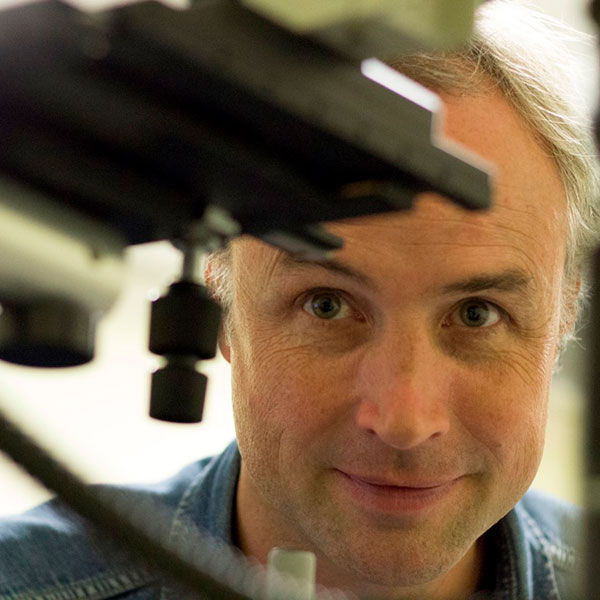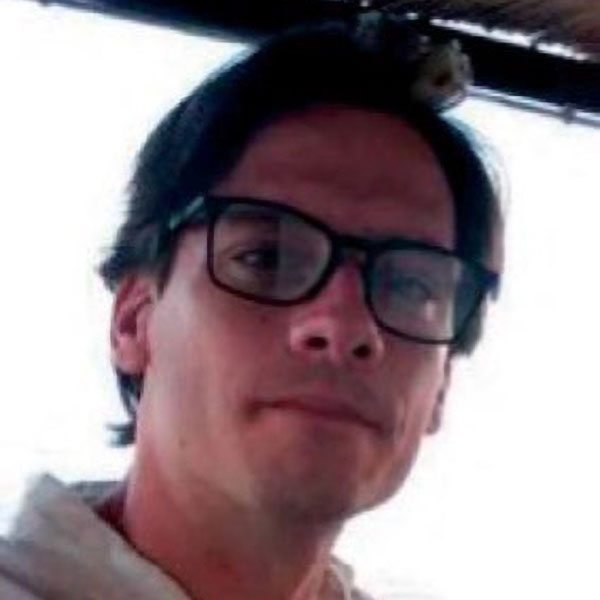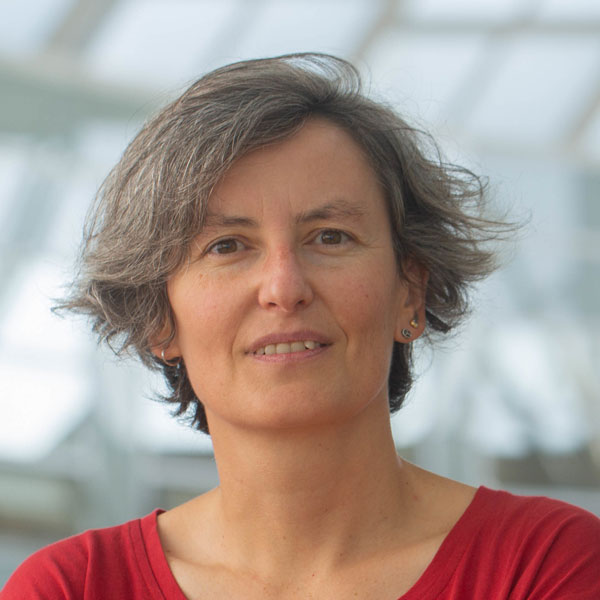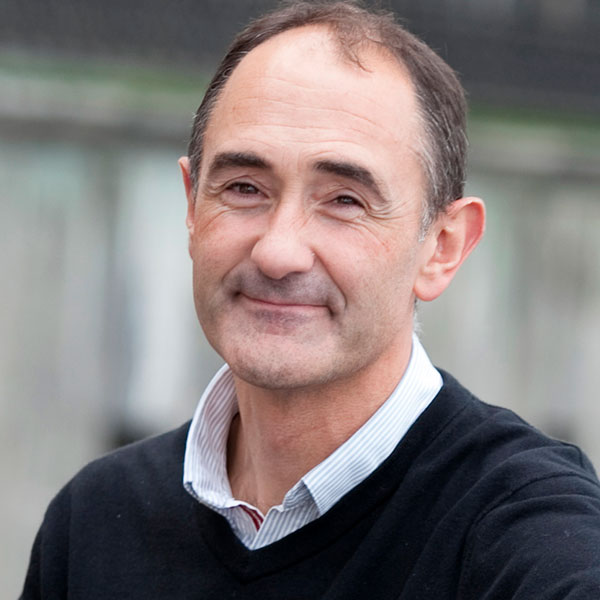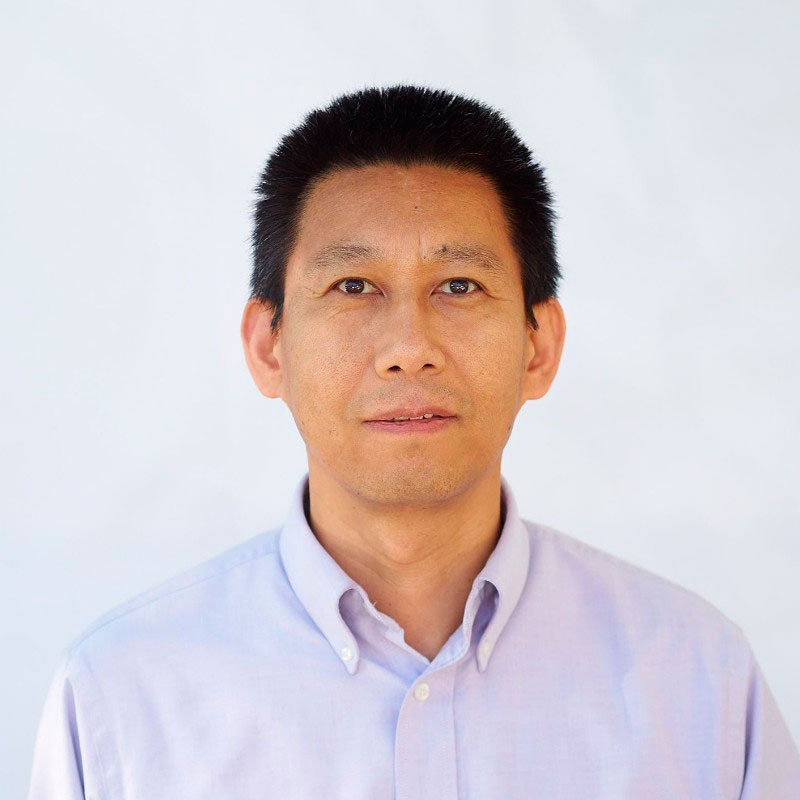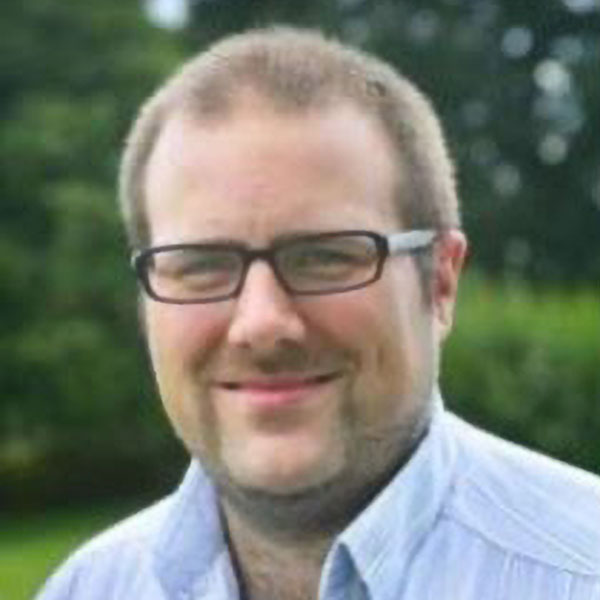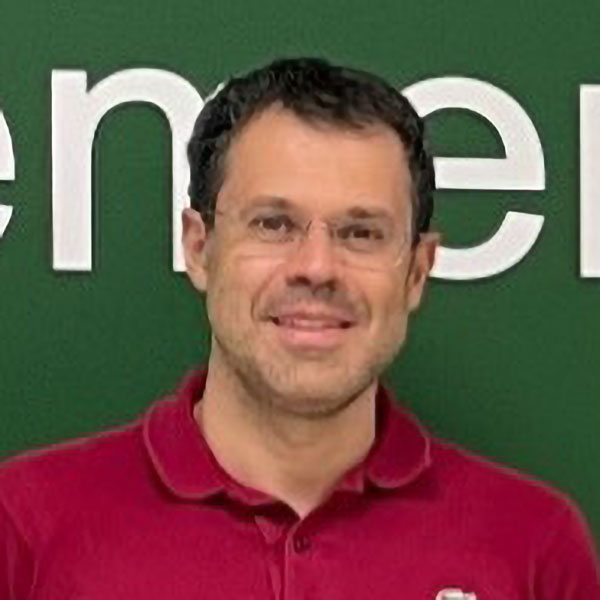
Roman Krahne
Roman Krahne is director of the Optoelectronics Research Line at the Italian Institute of Technology (IIT) in Genoa. His research activity focuses on plasmonic structures, photonic devices, and nanomaterials in optoelectronics such as lasers, LEDs and photodetectors. Roman Krahne received his PhD in Applied Physics from the University of Hamburg (Germany) in 2000. He joined the Weizmann Institute of Science as a postdoc, and became researcher at the National Research Council (Lecce, Italy) in 2003. Roman Krahne joined IIT in 2009 as Senior Researcher, and became group leader in 2014. He was appointed Guest Professor by the Institute of Semiconductors at the Chinese Academy of Sciences, and is member of the Counsel of Lecturers at the University of Genoa. He was Organizer of the “Colloidal Nanocrystals” symposium at the ANNIC 2018, Program Chair of the 8th International Conference on Quantum Dots, and Co-organizer of the 3rd International Conference “Nanoscience with Nanocrystals”. Now, he is the co-coordinator of H2020-FET Open DNA-Fairylight project.

Denis Garoli
Since 2014 Denis Garoli has been a researcher at the Italian Institute of Technology where he works on the fabrication of plasmonic nanopores for enhanced spectroscopies. Prof. Garoli obtained his PhD degree from the University of Padova (2008). His main interests are nanophotonics, plasmonics, DNA nanotechnology, nanoscopy, single-molecule techniques and sensing. During the period 2016-2019, he co-coordinated the FET-Open ProseqO project on Single-molecule sequencing by means of the plasmonic nanopore. Now, he is the co-coordinator of the H2020-FET Open DNA-Fairylight project.

Aitziber L. Cortajarena
Dr. Aitziber L. Cortajarena earned her Ph.D. in Biochemistry from the Universidad del País Vasco in 2002. Then, she worked on protein design in the group of Dr. Lynne Regan at Yale University, USA, as a Postdoctoral Fellow and as an Associate Research Scientist. She joined IMDEA Nanociencia in 2010 and started her independent research in nanobiotechnology. In 2016, she joined CIC biomaGUNE as Ikerbasque Research Professor. Currently, she leads the Biomolecular Nanotechnology group and is Scientific Vice-Director at CIC biomaGUNE.
Her research focuses on biomolecular engineering toward the generation of hybrid functional nanostructures and bioinspired materials for applications in technology and biomedicine.

Luis Liz-Marzan
He is Scientific Director of CIC biomaGUNE and he leads the BioNanoplasmonics Lab.
Research line: Nanoparticle synthesis and assembly, nanoplasmonics, and development of nanoparticle-based sensing and diagnostic tools.
Previous research experience in the University of Vigo, University of Utrecht, Tohoku University, University of Michigan, University of Melbourne, University of Hamburg and Max Planck Institute of Colloids and Interfaces.
Doctor in Chemistry 1992 from the University of Santiago de Compostela.

Weidong Wu
Dr. Weidong Wu is an expert in synthetic organic chemistry with extensive experience in nucleic acids chemistry (heterocyclic bases, modified sugars, nucleosides, phosphoramidites, nucleotides and oligonucleotides), along with experience in phosphoro-organic chemistry, chemo-enzymatic synthesis, and fluorescent dye labeling. He received his Ph.D. from Peking University and his post-doctoral training at Purdue University. He has devoted his career in the research and development of innovative chemicals and reagents in biotechnology industry. He is the co-inventor and lead technological contributor of Lighting Terminators chemistry for use in Next-Generation Sequencing technology. He has published over ten research papers in peer-reviewed scientific journals and is co-inventor of multiple patents.

Ulrich Keyser
After obtaining his PhD in low-temperature quantum transport from the Leibniz University of Hannover in Germany in 2002, Dr Keyser changed his research focus to single molecule biophysics by joining the Kavli Institute of Nanoscience at Delft University of Technology as a postdoctoral researcher. After demonstrating the first direct force measurements on DNA molecules in a nanopore, he joined Leipzig University with an Emmy Noether award as a group leader in 2006. Since 2007, Dr Keyser is a faculty member at the Cavendish laboratory working on the physics of membrane transport with financial support of an ERC starting grant (2010-2015) and an ERC consolidator grant (2015-2020). He was promoted to a readership in 2013 and a professorship in 2016.

Federico Thei
Federico Thei is CEO and co-founder at ELEMENTS SRL (Italy) since December 2013. At Elements he is the supervisor of all the activities, manage the marketing and sales, new products design, find new partnership and investors.
He received his M.Sc. in Telecommunication engineering in 2007 and the Ph.D. in Information and Communication Technologies in 2011 at the University of Bologna, Italy. His research activity was focused on microelectronics systems for biosensors readout. He was visitor Ph.D. student at the University of Southampton (UK), University of Twente (NL) and some EU companies in the electrophysiology field. For four years he was assistant professor for the Electronic engineering course “Electronic digital systems” at the University of Bologna. He has attended in November 2015 at the Technology Venture Launch Program Express in Menlo Park, Silicon Valley, and he was the winner of the final pitch competition. In November 2018 he has attended a course about The Business side of Biomedical Start-ups at the University of Bocconi, Milan.
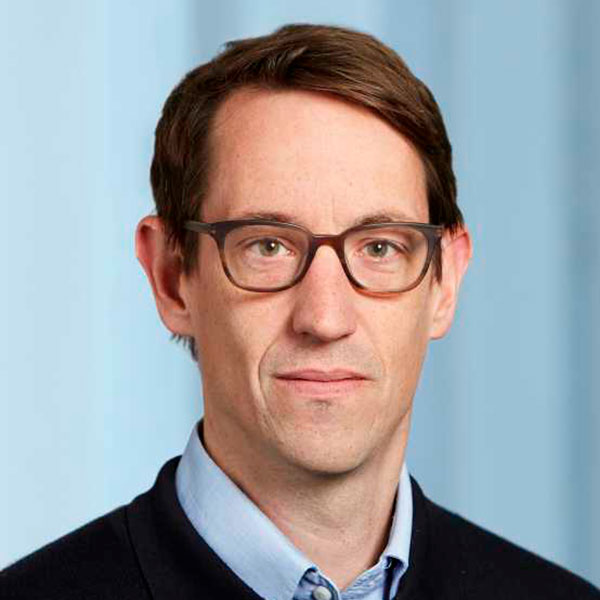
Robert Grass
Robert Grass (1979, Austrian) is Titulary Professor at the Functional Materials Laboratory at ETH Zurich. He studied Chemical Engineering at ETH with a stay at CASE Western Reserve University Cleveland in 2003 after which he pursued a PhD at ETH Zurich.
Robert Grass is involved in several areas of teaching chemistry, involving courses for small children, high-school chemistry education, process control education of chemical engineers at ETH Zurich and is member of the advisory board of the ETH Student Project House. His research encompasses nanomaterial science, surface chemistry and nucleic acid research and has resulted in over 110 research papers, 11 patents and 4 book chapters
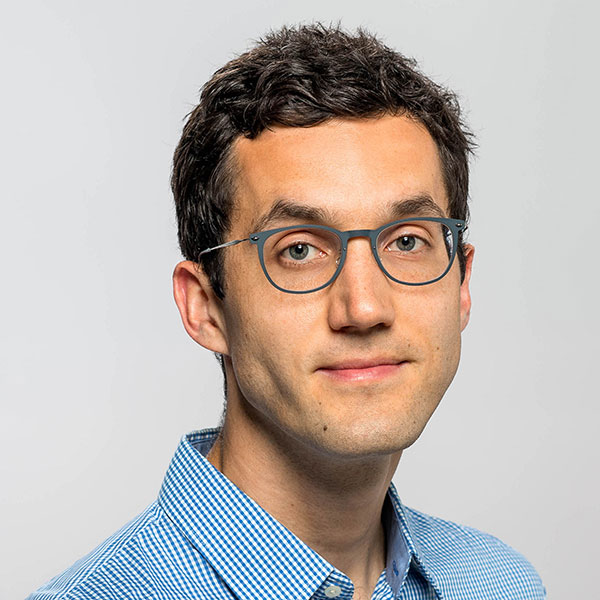
Reinhard Heckel
Reinhard Heckel is the head of the Machine Learning and Information (MLI) Processing Laboratory at the Department of Electrical Engineering at TUM. Reinhard Heckel is a Rudolf Moessbauer assistant professor in the Department of Electrical and Computer Engineering (ECE) at the Technical University of Munich, and an adjunct assistant professor at Rice University, where he was an assistant professor in the ECE department from 2017-2019. Before that, he spent one and a half years as a postdoctoral researcher in the Department of Electrical Engineering and Computer Sciences at the University of California, Berkeley, and a year in the Cognitive Computing & Computational Sciences Department at IBM Research Zurich. He completed his PhD in electrical engineering in 2014 at ETH Zurich and was a visiting PhD student at the Statistics Department at Stanford University. Reinhard is working in the intersection of machine learning and signal/information processing with a current focus on deep networks for solving inverse problems, learning from few and noisy samples, and DNA data storage.
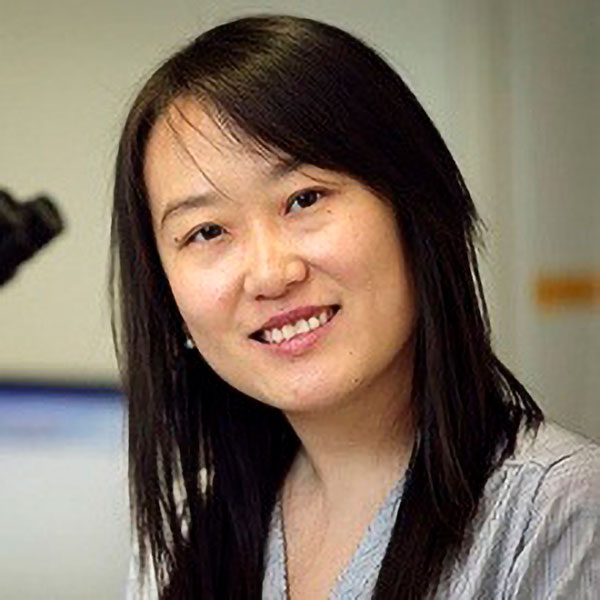
Laura Na Liu
Laura Na Liu (born 1979) is a Chinese physicist focused on researching nano-optics of three-dimensional meta materials as it applies to biology and chemistry.[1][2] After receiving her undergraduate and master's degree in China, she has had many global opportunities for education and research including Germany and the United States of America.Today, she is a professor at University of Stuttgart in Germany. Liu has completed her higher education all over the world. As a young woman, Liu completed her studies in Beijing and Hong Kong before she moved to Germany and earned a doctorate degree in physics at University of Stuttgart in 2009. In order to succeed, she had to overcome the culture shock between the two countries' lifestyles. A year later she became a postdoctoral fellow at the University of California, Berkeley. In 2011, she transitioned again to Rice University to be a Texas Instrument Visiting Professor. The following year, Liu joined the Max-Planck Institute for Intelligent Systems and led the "Small Nanoplasmonics" research group. Since 2015, Liu moved back to Germany and is a professor at University of Stuttgart.
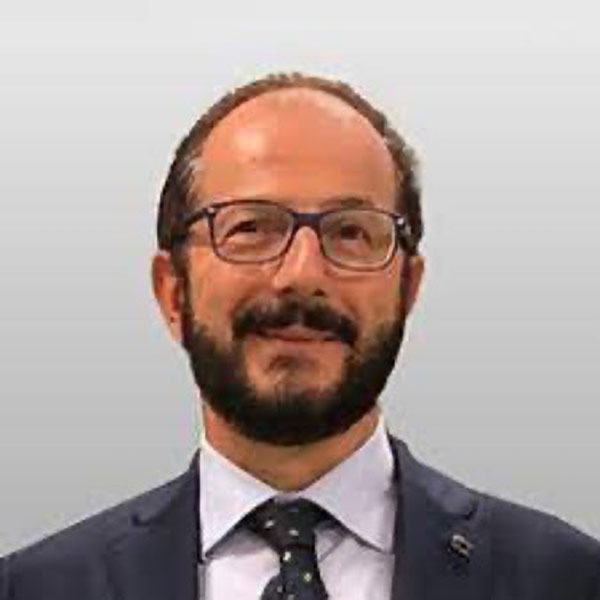
Dino Paladin
AB ANALITICA is an UNI EN ISO 9001 certified SME company. In the year 2006 the certification UNI EN ISO 13485 was obtained for the design, development, production and trade of in vitro medical-diagnostic devices (IVD). AB ANALITICA is particularly aware of emerging technologies and the requirements of the diagnostic market. As a result, it has invested in its own research and development department, which is involved in advanced diagnostics in the following sectors: microbiology, virology, oncology, hematology, and genetics. The company is situated in Padua, North of Italy and has a sales agent network that covers the entire Italian territory and local distributors in all over the European countries. The company is also active in development of biotechnology products and nanotechnology and in the production, installation, repair and maintenance of medical devices and software for diagnostics and device for analysis and research.
